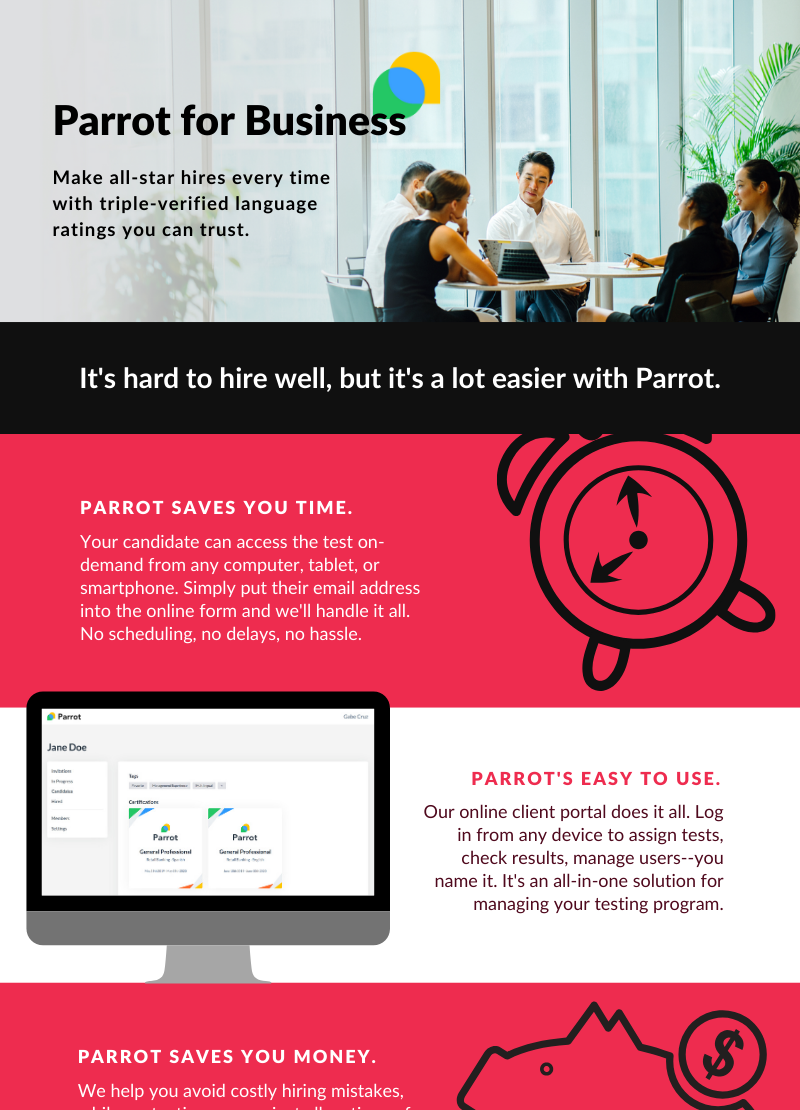Why Do Medical Interpreters Need to Be Certified?
Hiring well-trained, certified medical interpreters can help clinicians provide quality health care to patients with limited English proficiency(LEP).
According to the 2019 report issued by the Migration Policy Institute, immigrants share 13.7 percent of the country’s 327.2 million people. As the influx of immigrants in the United States becomes more diverse, the number of people seeking health care continues to accelerate. As a result, the number of non-English speakers increases. The language barrier in health care has been an issue for over a decade.
Often doctors urge untrained volunteers or bystanders to be interpreters. Despite native fluency, limited familiarity with medical terms leads to misdiagnosis.
Medical interpreting is more complex than simple translation. These language skills are specialized; therefore, certification is paramount.
Learning skills and basic medical vocabulary to be fit for service in the healthcare field is essential.
Medical Interpreter Certification Details
What kind of certifications do medical interpreters need?
National Board of Certification for Medical Interpreters (NBCMI) and Certification Commission for Healthcare Interpreters (CCHI) are two U.S. organizations that certify healthcare interpreters at the national level.
The first step to being a certified healthcare interpreter is bilingual(fluent in two languages). The NBCMI offers certification in Spanish, Cantonese, Mandarin, Russian, Korean, and Vietnamese. At the same time, NBCMI and CCHI offers certification in Spanish, Arabic, and Mandarin. Although 23% of Americans are bilinguals, they fail to meet the pre-requisites for a language proficiency test.
High proficiency in the second language is indispensable for certification.
For the same, candidates need to have an authoritative rating from a repute language agency. To that end, CCHI and NBCMI accept a Parrot rating as proof. We help you get a triple-verified rating to demonstrate your language skills. Test your language skills online and get certified; it’s seamless! An ILR-2 or higher score is mandatory. Once this is met, the perspective interpreted must complete a 40-hour minimum accredited healthcare interpreter training course followed by a skill exam from either organization.
Do the certification requirements change from state to state?
Medical Interpreting certification remains the same across the US and Canada. The National Commission for Certifying Agencies (NCCA) and the Commission for Medical Interpreters Education (CMIE) accredit the training. The CCHI certifies healthcare interpreters to receive NCCA accreditation for its certification programs. On the contrary, NBCMI candidates receive a CMI credential.
Are the certification requirements different for different types of medical professionals?
Certifications from CCHI and NBCMI do not vary according to specialty areas. The certification’s core purpose is to offer a national professional standard that assesses their core professional knowledge, critical thinking, ethical decision-making, and cultural responsiveness skills. To sum up, these skills are non-negotiable to perform the healthcare interpreter’s duties.
Does the medical interpreter certification require renewal?
Like many other careers, certification renewal is required to align medical interpreters’ skills with changing job requirements and ensure that they are updated with their development. NBCMI and CCHI certifications require renewal in four years. Submit the online renewal application before the expiration of the existing credential to avoid retaking the CCHI’s examinations. The NBCMI requires recertification every five years.
If a healthcare interpreter get certified by NBCHI and CCHI, they would have to comply with 16 hours of continuing education every two years. In other words, a total of 32 hours every four years. A renewal fee of $240 is applicable(subsidized because of the COVID-19 pandemic). On the other hand, to get certified by the National Board, 30 hours of training every five years is required. A $300 recertification fee is applicable.

Additional Resources

Parrot for Business Info Sheet
We built Parrot to help businesses hire candidates with the language skills those businesses need to grow. Read this info sheet to learn more about how easy your testing program could be.
Test Quality & Validity
By combining an innovative methodology with modern tech, we’re creating a new standard for evaluating language skills. However, none of that would matter if our results weren’t also unquestionably valid. This report shows how we’ve fine-tuned our method to meet and exceed key industry standards for validity.


